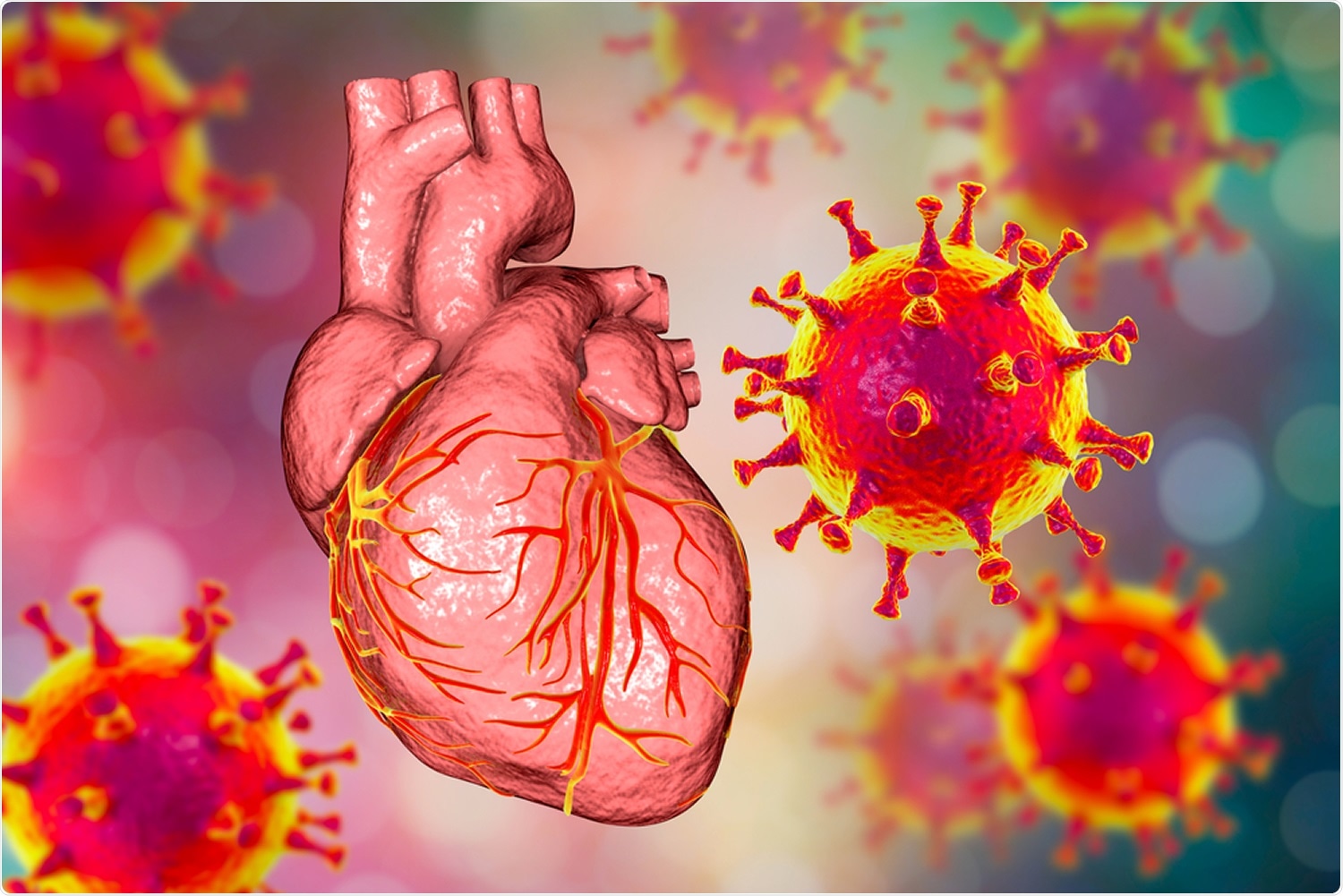Scientists from the University of Ottawa, Canada, have recently estimated the prevalence of myocarditis/pericarditis in individuals recently immunized with mRNA-based coronavirus disease 2019 (COVID-19) vaccines. The analysis reveals a prevalence of 10 myopericarditis cases for every 10,000 vaccine doses. The study is currently available on the medRxiv* preprint server.

Background
The recent outbreak of COVID-19 caused by severe acute respiratory syndrome coronavirus 2 (SARS-CoV-2) has put a severe burden on the healthcare system of many countries, with more than 228 million infections and 4.69 million deaths reported. COVID-19 vaccines were developed in record time to control and reduce the spread of the pandemic. As of September 20, 2021, more than 5.9 billion vaccine doses have been administered globally, equivalent to 76 doses per 100 individuals.
Among currently available COVID-19 vaccines, mRNA-based vaccines have shown high efficacy against SARS-CoV-2 infection and severe disease in clinical trials and real-world setups. However, according to the World Health Organization (WHO) vaccine safety committee report, a small proportion of individuals, especially men, may develop myocarditis (heart muscle inflammation) or pericarditis (pericardium inflammation) shortly after receiving mRNA COVID-19 vaccines.
In the United States, the prevalence of myopericarditis in vaccine recipients aged 16 to 24 years has been estimated to be more than expected.
The current study has been conducted to identify myocarditis/pericarditis cases among recently vaccinated individuals in Ottawa.
Study design
The scientists analyzed electronic health record to identify all patients who were admitted to a hospital in Ottawa between June and July 2021 with a suspected diagnosis of vaccine-induced myocarditis/pericarditis.
They diagnosed the disease based on clinical presentation, electrocardiogram (ECG)/echocardiogram (echo) findings, and serial troponin, and further confirmed the diagnosis using cardiovascular magnetic resonance imaging (CMR).
To estimate the prevalence of myocarditis/pericarditis, they collected information from the Public Health Agency Ottawa about total doses of mRNA vaccine administered in the Ottawa region during the study period.
Important observations
A total of 32 patients with vaccine-related myocarditis/pericarditis were identified during the study period. The average age group of the patients was 33 years, and the majority were men. Symptoms developed after the second vaccine dose in 27 patients and after the first vaccine dose in only 5 patients. The most commonly reported symptoms were chest pain, breathlessness, fever, and chills.
The average duration between the last vaccination and symptom onset was 1.5 days. Regarding types of vaccine, Pfizer/Moderna mRNA-based vaccines were identified as the most common combination, followed by Moderna/Moderna. A combination of AstraZeneca/Moderna was identified in only two patients.
At the time of admission, 22 patients showed abnormal ECG findings, including diffuse ST segment elevation with PR depression or T wave inversion. However, in 10 patients, ECG findings were normal.
Prevalence of myocarditis/pericarditis
During the study period, a total of 32,379 doses of Pfizer and Moderna vaccines were administered locally. Based on the total vaccine doses, the estimated prevalence of myocarditis/pericarditis was 10 cases for every 10,000 vaccine doses. The estimations made separately for each vaccine type revealed that the prevalence of myocarditis/pericarditis among Pfizer and Moderna vaccine recipients was 4 and 16 cases per 10,000 immunizations, respectively.
In-hospital clinical course of Myocarditis/pericarditis
Of 32 patients, 30 were admitted to the hospital for clinical observation. Two were monitored as outpatients. The average duration of hospital stay was 4 days. The majority of patients were treated empirically with aspirin and colchicine, and none of them required steroids or other types of immunosuppressants. In all patients, symptoms subsided soon after the standard treatment. No adverse cardiac events and arrhythmias were observed during the hospital stay.
Based on the CMR findings, 18 patients were identified with myocarditis, 10 with myopericarditis, and 2 with pericarditis. Although the average left ventricular ejection fraction was 57% in most patients, nine showed mild left ventricular dysfunction with an ejection fraction below the normal threshold of 55%. Non-syncopal non-sustained ventricular tachycardia was observed in only one patient.
Study significance
The study reveals that the incidence of myocarditis is relatively infrequent among recipients of mRNA-based COVID-19 vaccines. However, younger males are more susceptible to develop the condition than females.
As mentioned by the scientists, patients with a documented history of vaccine-induced myocarditis should be carefully selected for booster vaccine doses.
*Important Notice
medRxiv publishes preliminary scientific reports that are not peer-reviewed and, therefore, should not be regarded as conclusive, guide clinical practice/health-related behavior, or treated as established information.
Source
- Kafil T. 2021. mRNA COVID-19 Vaccination and Development of CMR-confirmed Myopericarditis, medRxiv, https://www.medrxiv.org/content/10.1101/2021.09.13.21262182v1
Posted in: Men's Health News | Medical Research News | Medical Condition News | Disease/Infection News
Tags: Aspirin, Chest Pain, Colchicine, Coronavirus, Coronavirus Disease COVID-19, Depression, Echocardiogram, Efficacy, Electronic Health Record, Fever, Healthcare, Heart, Hospital, Imaging, Inflammation, Magnetic Resonance Imaging, Muscle, Myocarditis, Pain, Pandemic, Pericarditis, Pericardium, Public Health, Respiratory, SARS, SARS-CoV-2, Severe Acute Respiratory, Severe Acute Respiratory Syndrome, Syndrome, Troponin, Vaccine

Written by
Dr. Sanchari Sinha Dutta
Dr. Sanchari Sinha Dutta is a science communicator who believes in spreading the power of science in every corner of the world. She has a Bachelor of Science (B.Sc.) degree and a Master's of Science (M.Sc.) in biology and human physiology. Following her Master's degree, Sanchari went on to study a Ph.D. in human physiology. She has authored more than 10 original research articles, all of which have been published in world renowned international journals.
Source: Read Full Article
